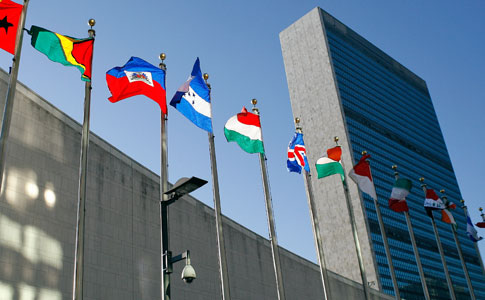NOTE: This guest post was written by Jocelyn Jones. Jocelyn is a 2014 graduate of the School of Diplomacy and International Relations. Her specializations include Global Health and Human Security and Latin America and the Caribbean. Her Master’s Research project studied the variance of public health expenditure in Latin America and the Caribbean.
As each day passes and the number of detected Ebola cases continue to increase, I am adamantly concerned about the future of global health. Each country has their own internal situations that must be addressed, but if world leaders do not fervently take action against this immense problem we could face a day in the near future with an Ebola pandemic. The World Health Organization (WHO) has taken the lead on Ebola outbreaks in the past, but with the current outbreaks the WHO took more than three months to organize a meeting to address the new cases. I believe the gap in time for addressing the problem came from the lack of resources the WHO has faced since the global financial crisis. The WHO budget has been cut by nearly $1 billion, leading to inadequate resources for disease outbreaks.
President Barack Obama specifically spoke on the potential growth of Ebola in his address to the United Nations General Assembly on September 24th. President Obama adamantly stated, “It’s easy to see this as a distant problem – until it isn’t. That is why we will continue mobilizing other countries to join us in making concrete commitments to fight this outbreak, and enhance global health security for the long-term.” With President Obama and other world leaders speaking on the issue the United Nations established UN Mission for Ebola Emergency Response (UNMEER), which is defined by a five-pillar strategy. According to the World Bank, the target budget to complete this five-pillar strategy is $988 million. The current statistics state $653 million has been pledged, $143 million has been committed, and $28 million has been disbursed. Where does the other $355 million come from to ensure that this strategy is completed and successful?
After researching the immensity of the Ebola epidemic, I came across a 2012 article by Lawrence O. Gostin of Georgetown University Law Center entitled, “A Framework Convention on Global Health: Health for All, Justice for All.” This caught my eye because he defined his approach as a binding treaty for the international community to negotiate a framework with key normative standards. The Framework Convention on Global Health (FCGH) “creates fair terms of international cooperation to solve the defining global health issues in a more systematic and integrated way.” A plethora of criticisms arose against the framework, acknowledging the expense and time it would take to establish. While the FCGH was not put into action, I believe that some aspects of the FCGH could be used to address the UNMEER strategy for the Ebola epidemic. A binding agreement would address the $355 million that needs to be pledged to eradicate Ebola and would set a new precedent to approaching the governance of global health.
Global health has become a prominent subject of discussion because of the immensity that it plays in the future of our world. Governance for global health consists of institutions, rules, norms, and processes that shape the health of the population worldwide. The decisions made in controlling and hopefully eradicating the Ebola epidemic will have direct ramifications on how global health will emerge in the coming years. I am optimistic but at the same time pessimistic to the UNMEER strategy. I believe that the steps laid out hit the hard points that need to be addressed in regards to Ebola, but my judgment focuses on my knowledge of the United Nations past. While the UN has made valiant efforts in addressing the multitude of global issues, there is no binding agreement that is requiring countries to actively donate to the strategic efforts laid out to eradicate Ebola. I am hopeful that the UNMEER strategy will be successful and the money for the strategy can be obtained through partnerships. If the resources for the UNMEER strategy cannot be obtained, I believe the premise of Lawrence Gostin’s FCGH could provide binding action to ensure the Ebola epidemic does not become an Ebola pandemic.
